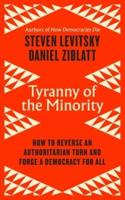Publisher's Synopsis
For more than a century, trading posts in the American Southwest tied the U.S. economy and culture to those of American Indian peoples - and in this capacity, Hubbell Trading Post, founded in 1878 in Ganado, Arizona, had no parallel. This book tells the story of the Hubbell family, its Navajo neighbors and clients, and what the changing relationship between them reveals about the history of Navajo trading. Drawing on extensive archival material and secondary literature, historian Erica Cottam begins with an account of John Lorenzo Hubbell, who was part Hispanic, part Anglo, and wholly brilliant and charismatic. She examines his trading practices and the strategies he used to meet the challenges of Navajo exchange customs and a seasonal trading cycle. Tracing the trading post's affairs through the upheavals of the twentieth century, Cottam explores the growth of tourism, the development of Navajo weaving, the automobile's advent, and the Hubbells' relationship with the Fred Harvey Company. She also describes the Hubbell family's role in providing Navajo and Hopi demonstrators for world's fairs and other events and in supplying museums with Native artifacts. Acknowledging the criticism aimed at the Hubbell family for taking advantage of Navajo clients, Cottam shows the family's strengths: their integrity as business operators and the warm friendships they developed with customers and with the artists, writers, archaeologists, politicians, and tourists attracted to Navajo country by its unparalleled landscapes and fascinating peoples. Cottam traces the preservation efforts of Hubbell's daughter-in-law after the Great Depression and World War II fundamentally altered the trading post business, and concludes with the post's transition to its present status as a National Park Service historic site.








